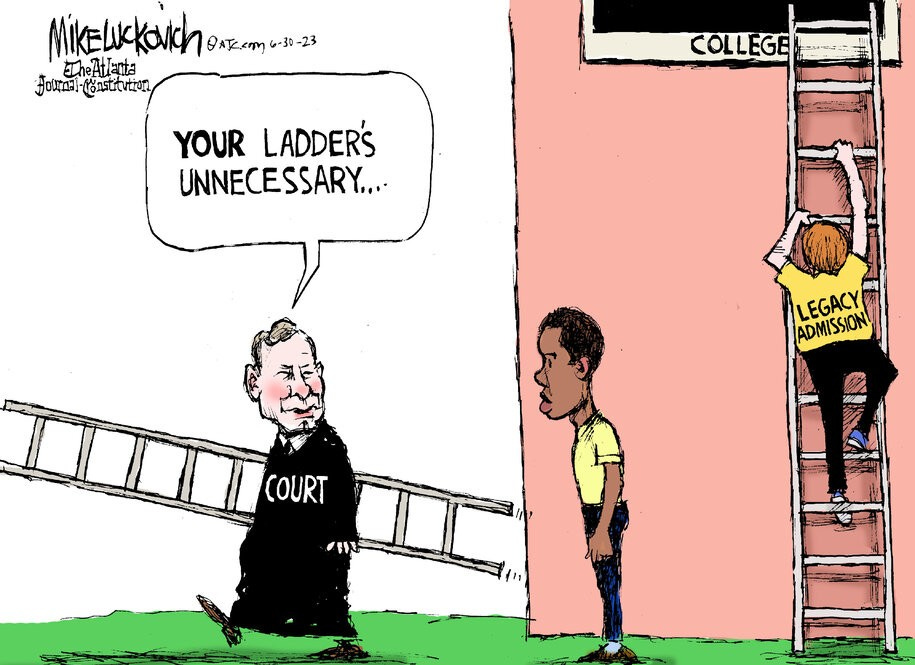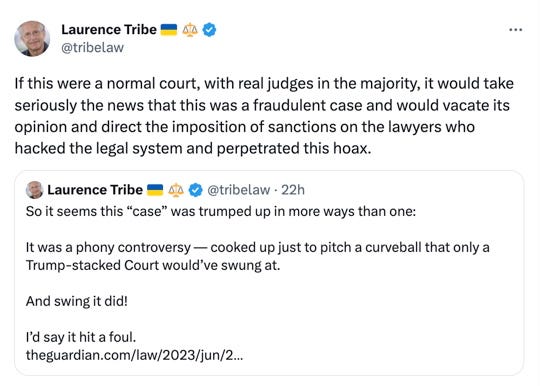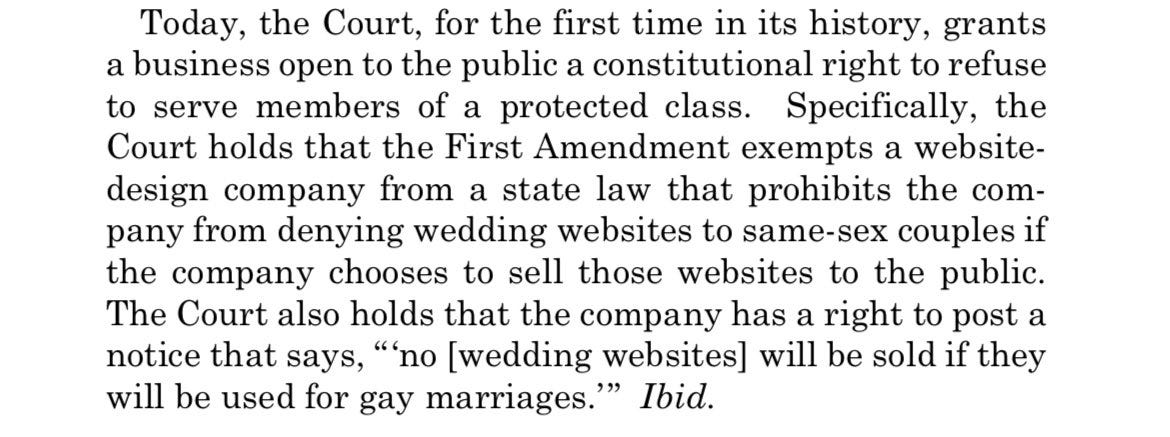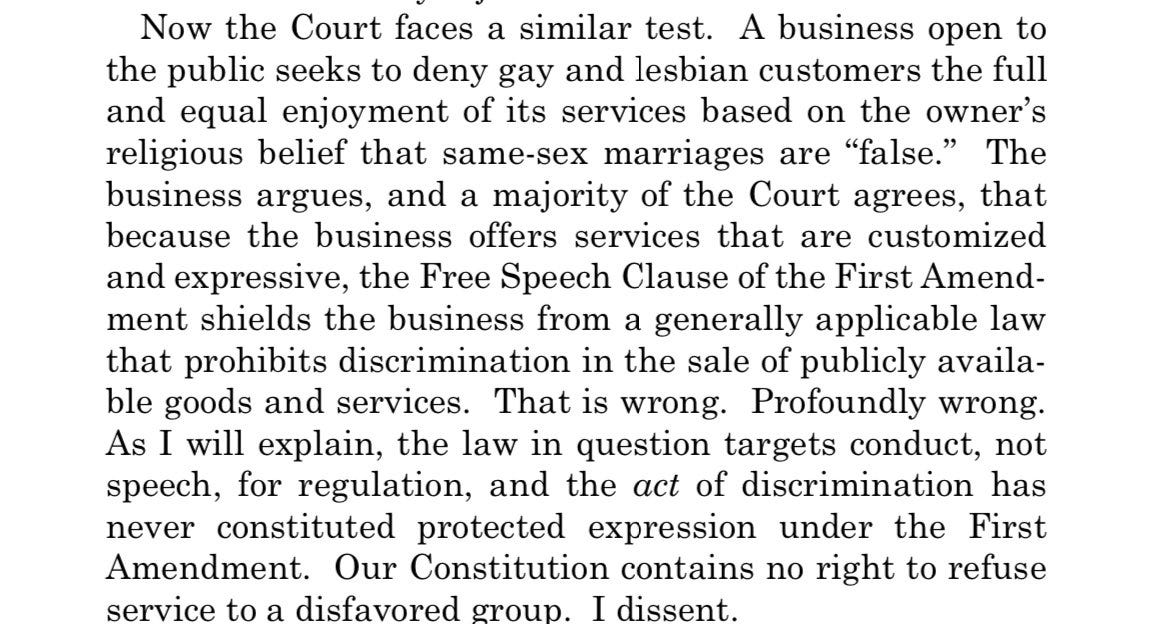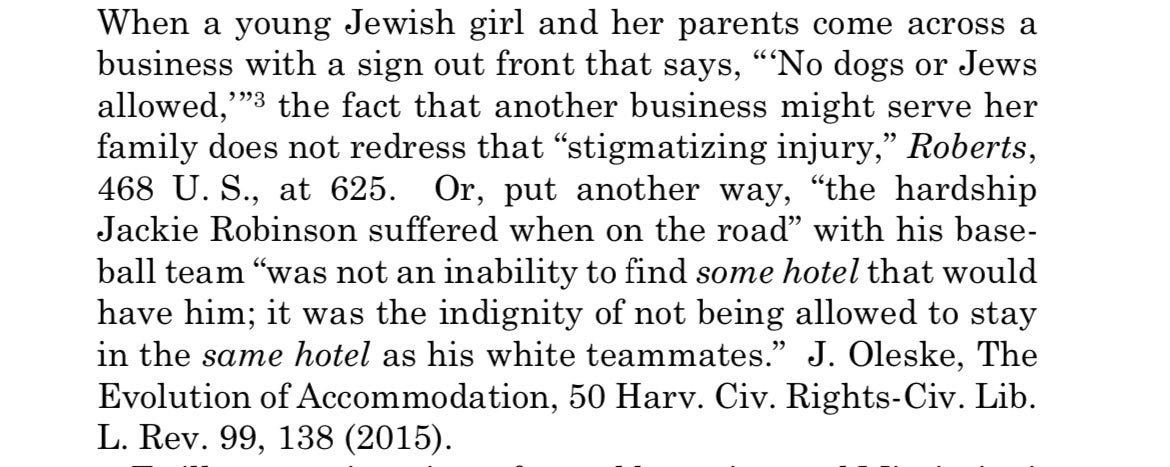Sixties Fan
Diamond Member
- Mar 6, 2017
- 58,480
- 11,084
- Thread starter
- #1,181
Follow along with the video below to see how to install our site as a web app on your home screen.
Note: This feature may not be available in some browsers.
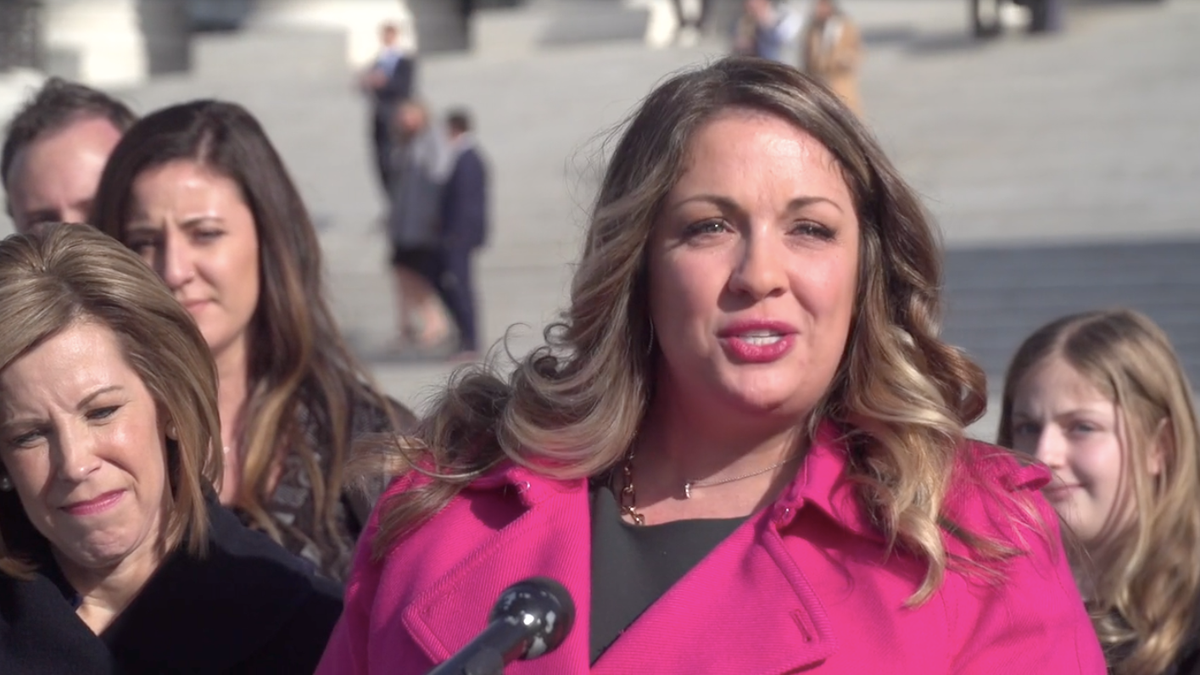
 jezebel.com
jezebel.com
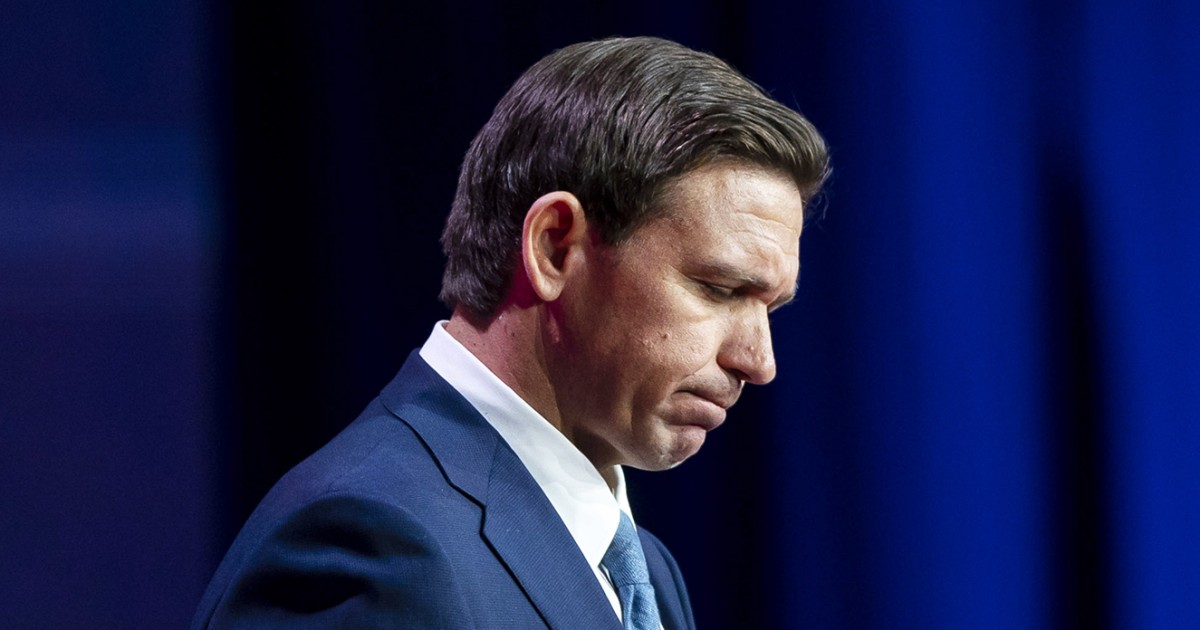
With let-them-eat-cake obliviousness, today, the majority pulls the ripcord and announces “colorblindness for all” by legal fiat. But deeming race irrelevant in law does not make it so in life. And having so detached itself from this country’s actual past and present experiences, the Court has now been lured into interfering with the crucial work that UNC and other institutions of higher learning are doing to solve America’s real-world problems.
Chief Justice John Roberts got the chance to complete the Day of Jubilee he declared in Shelby County. The 14th Amendment is now magically and completely converted into a vehicle for white victimhood. Justice Clarence Thomas gets to take his twisted self-loathing out for another walk. And affirmative action is now as dead as Roger Taney because, you know, colorblind. By deciding Students For Fair Admissions v. Harvard, the carefully manufactured conservative majority on the Supreme Court kept faith with conservatism's multi-decade alliance with the remnants of American apartheid. As Garrett Epps pointed out on the electric Twitter machine, when Roberts was just starting out, he tried to get Ronald Reagan to abolish affirmative action by executive order. Roberts has been in this for the long haul.No one benefits from ignorance. Although formal race-linked legal barriers are gone, race still matters to the lived experiences of all Americans in innumerable ways, and today’s ruling makes things worse, not better. The best that can be said of the majority’s perspective is that it proceeds (ostrich-like) from the hope that preventing consideration of race will end racism. But if that is its motivation, the majority proceeds in vain. If the colleges of this country are required to ignore a thing that matters, it will not just go away. It will take longer for racism to leave us. And, ultimately, ignoring race just makes it matter more.
Of course, which of these four hypothetical students would you least like to be if you were stopped at midnight by the police? Thought so.It may be the case that exposure to different perspectives and thoughts can foster debate, sharpen young minds, and hone students’ reasoning skills. But, it is not clear how diversity with respect to race, qua race, furthers this goal. Two white students, one from rural Appalachia and one from a wealthy San Francisco suburb, may well have more diverse outlooks on this metric than two students from Manhattan’s Upper East Side attending its most elite schools, one of whom is white and other of whom is black.

What? You do not have any answer to any of the posts? Yes, or no?There needs to be a way to disable a forum user from replying to his own post infinitely forcing it to the top of the board and turning it into his personal blog
